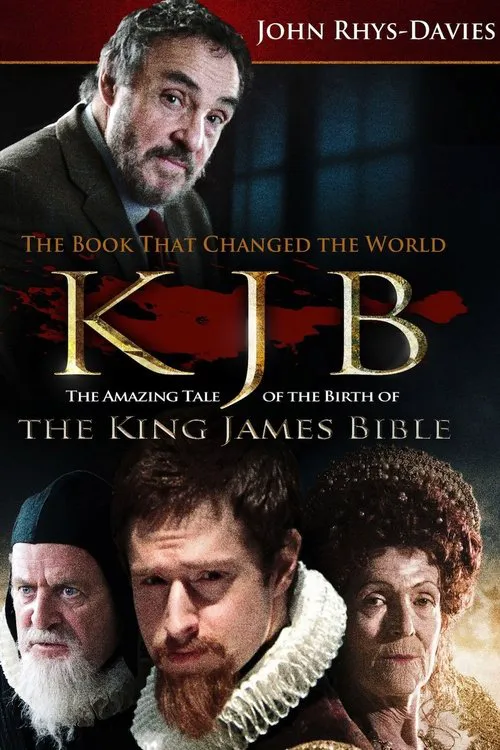KJB: The Book That Changed the World

Plot
The King James Bible is a cornerstone of Western civilization, shaping not only Christian thought but also influencing the English language itself. Its profound impact on history is the subject of KJB: The Book That Changed the World. Narrated by the iconic John Rhys-Davies, this documentary masterfully reconstructs the tumultuous journey of how this influential book came into existence. As the program opens, we find ourselves immersed in the tumultuous world of 17th-century England. The Church of England, torn asunder by the English Civil War, sought to standardize translations of the Bible. To accomplish this, King James I of England, the first British monarch to unite the Church of England and the Scottish Church, commissioned a team of esteemed scholars to create a new translation. KJB: The Book That Changed the World skillfully reenacts the pivotal moments of the King James Bible's creation. The documentary's elaborate reenactments, juxtaposed with historical footage and images, bring the characters to life as we witness the arduous translation process unfold. We see scholars pouring over ancient texts, consulting with one another, and debating the precise meaning of sacred passages. We are introduced to some of the key figures behind the translation, including William Tyndale, who laid the ground-work for the King James Bible by translating the Bible into Early Modern English before his untimely execution in 1536. Despite the challenges of the time, Tyndale's work laid the groundwork for future scholars. We also see the pivotal work of Miles Smith and John Fell, who were members of the team tasked with translating the King James Bible. Under Smith's supervision, Fell made significant contributions to the translation of the Old Testament, drawing upon the scholarship of renowned scholars of the time. Throughout the documentary, KJB: The Book That Changed the World seamlessly weaves live-action reenactments with on-location footage of pivotal biblical landmarks. We travel to the ancient land of Israel, exploring sites that have captivated human imagination for centuries. From the sacred city of Jerusalem to the storied River Jordan, we experience the geography and culture that inspired countless biblical tales. As the documentary continues, we delve into the significant historical events that shaped the development of the King James Bible. We learn about the influence of Martin Luther's 95 Theses and the subsequent Protestant Reformation, which challenged traditional Catholic views of the Bible and paved the way for the widespread dissemination of scripture in vernacular languages. We also witness the role of printing technology in spreading the King James Bible. The invention of the printing press in the 15th century made mass production of texts possible, significantly increasing the availability and accessibility of scripture to the masses. This technological shift helped to spread the influence of the King James Bible far and wide, cementing its place in the hearts and minds of countless individuals. In addition to its rich historical context and compelling narrative, KJB: The Book That Changed the World offers an intimate look at the scholarly and theological debates surrounding the translation. The documentary delves into discussions regarding the nuances of biblical languages, the implications of interpretative nuances, and the role of tradition and precedent in shaping the final text. Through a rich tapestry of historical images, reenactments, and expert commentary, the documentary masterfully illuminates the intricate and fascinating tale of the King James Bible's creation. We witness scholars navigating complex theological and linguistic puzzles, often guided by their firm convictions about the divine message at the heart of the Bible. KJB: The Book That Changed the World leaves us with a deeper appreciation for the enduring impact of the King James Bible. This majestic translation not only transformed the manner in which English-speaking people understand and interpret Scripture but also left an indelible mark on the language itself.
Reviews
Recommendations


